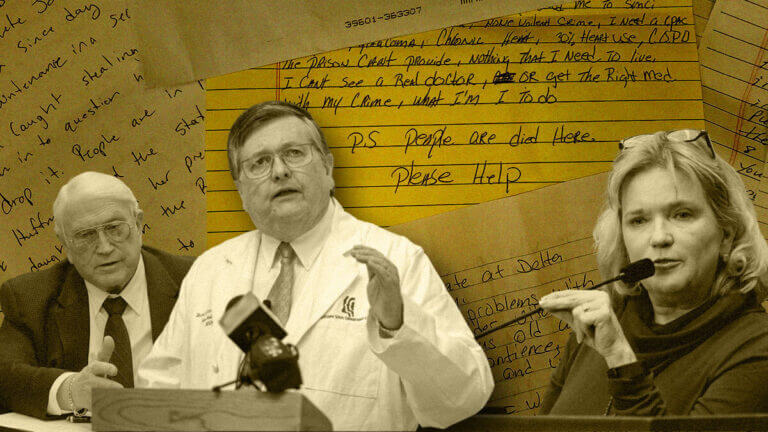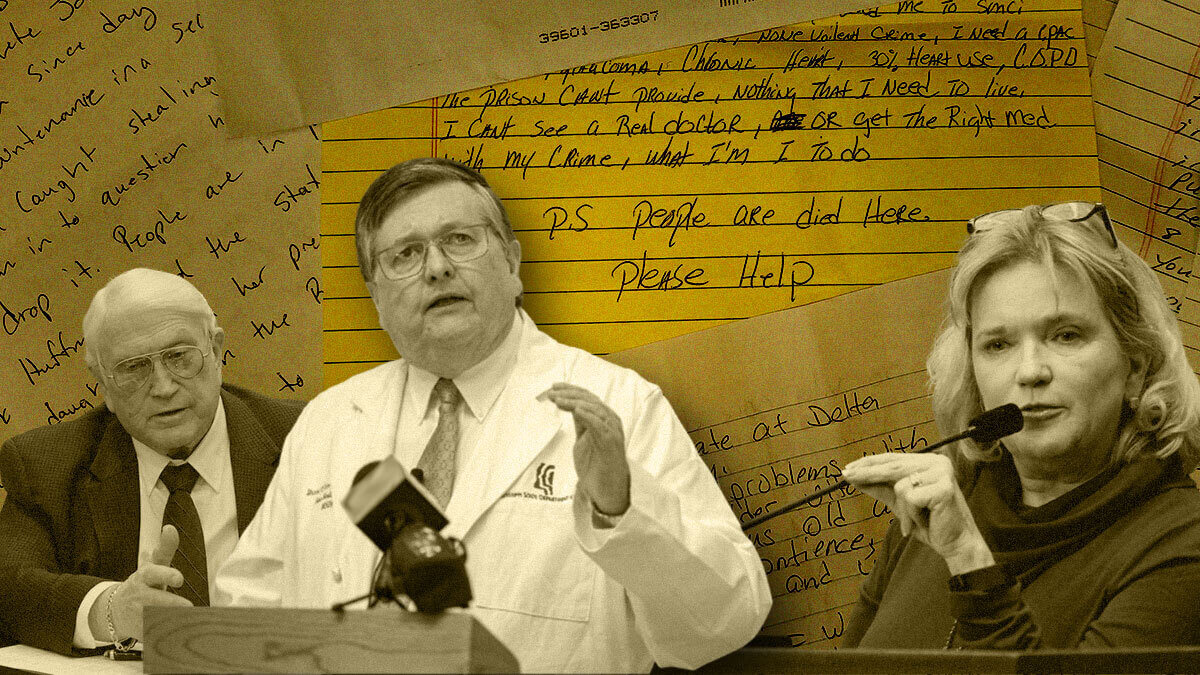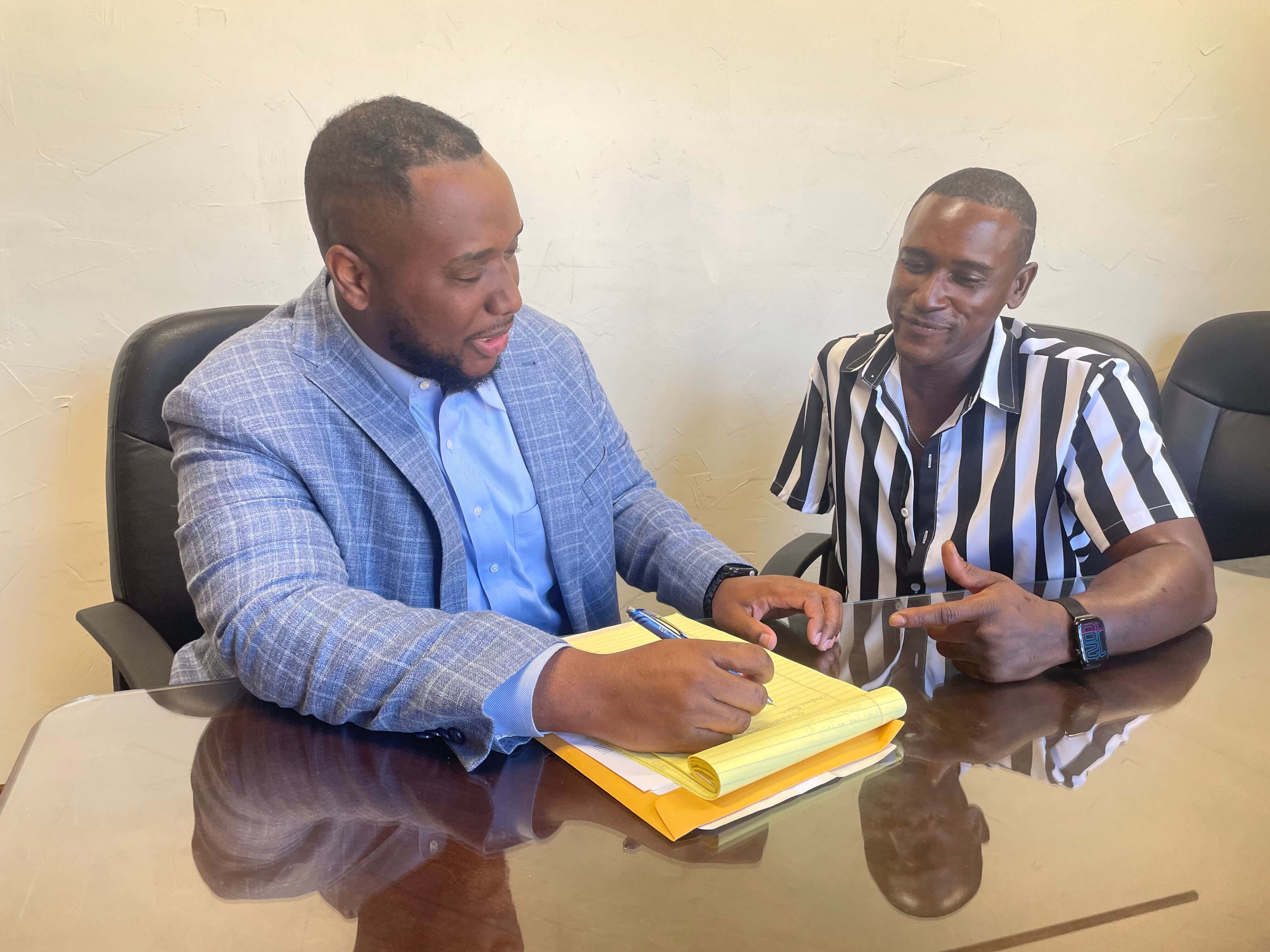

Christopher Boose awoke to see a sign for the paraplegic unit at the hospital where he had arrived five hours earlier, shackled and drifting in and out of consciousness.
“Cut it off,” he remembered the doctors shouting shortly after they had wheeled him into an operating room. “Cut it off so we don’t lose him.”
Then everything went dark. When he came to, he tried to turn over.
“My right arm wasn’t there,” he said.
He started crying, and a nurse came over to reassure him: He had died on the operating table before doctors revived him. He was lucky to be alive. But they had to amputate his arm to stop the spread of sepsis.
The infection stemmed from a broken bone after Boose, then 38, fell off his bunk at the Central Mississippi Correctional Facility onto his arm. Left untreated for a week, the sepsis spread.
A one-year sentence for a Drug Court infraction became a lifetime sentence as an amputee, the Newton County man alleges in a lawsuit filed in federal court for the Southern District of Mississippi.
The lawsuit targets VitalCore Health Strategies, a private company contracted to provide health care in Mississippi’s prisons. Systemic neglect gave way to “cruel and unusual punishment” prohibited by the Constitution, the lawsuit contends.
VitalCore did not respond to requests for comment about the lawsuit or the episode that led to Boose losing an arm.
Boose, now 40, filed his lawsuit in June and reached out to Mississippi Today after it began publishing its Behind Bars, Beyond Care series documenting alleged denial of health care in Mississippi prisons. He and his attorneys say his story is a case study of how routine injuries in prison escalate into permanent harm.
Additionally, his lawyers’ arguments aim to test a constitutional boundary: At what point under the Eighth Amendment does the delay of medical care in prison amount to cruel and unusual punishment?
‘They took my arm off’
In February of 2023, Boose, a Mississippi State University graduate and former Wells Fargo employee, was arrested for violating the terms of a Drug Court program. He was sentenced in Newton County Circuit Court to complete alcohol and drug treatment in prison, a sentence designed to be a one-year rehabilitative term, his attorney said.

He entered the Central Mississippi Correctional Facility, a sprawling prison on 171 acres in Rankin County. The prison has 18 housing units, and with a capacity of about 4,000, it holds the largest number of people of any state prison.
But when Boose arrived for his sentence, it took months before he received any of the drug treatment mandated by the judge, he said in an interview.
In phone calls from prison, Boose alerted his mother, Cynthia Boose, to the delay. She called the prison and eventually discovered the Mississippi Department of Corrections was short on drug counselors, she said in an interview.
“I called, and they said it was because of staffing,” Cynthia said. “OK, so my son is sitting there, waiting for a treatment or waiting for a class, and y’all can’t find nobody to do it?”
Staffing shortages have been a persistent problem for both MDOC and VitalCore. In April, the department withheld $2 million in state money for VitalCore for having inadequate staff according to its contract, Mississippi Today reported.
An MDOC spokesperson said the department would not comment on pending litigation and did not respond to a question about the agency’s alleged shortage of drug counselors.
After about four-and-a-half months, Boose said, he began receiving drug counseling. But his treatment was interrupted by the episode that would irrevocably change his life.

On Dec. 15, 2023, Boose took a hot shower and returned to his cot in “quickbed” — a unit where inmates sleep on bunk beds in dormitory-style housing. While climbing up to his bed, he slipped and fell onto the floor, his side bearing the brunt of the impact. The pain was immediate and radiated from his elbow to his collarbone.
He asked a guard to escort him to the prison infirmary.
“The guard told me to go sit my ass back down,” Boose said.
Boose said he had no recourse.
That’s a problem born from the absence of an organized process for requesting medical attention, said Rep. Becky Currie, the Republican chairwoman of the House Corrections Committee. Currie has traveled to prisons around the state and spoken with inmates about issues they’ve faced when trying to get medical care.
She said inmates were often not provided any formal process for scheduling medical appointments. Some prisons also didn’t provide access to medical professionals overnight.
At a legislative budget hearing in September, Corrections Commissioner Burl Cain said Central Mississippi Correctional Facility has sent some prison nurses directly into inmate dormitories because requests for medical visits have gone unanswered in the past.
“Inmates would say they signed up for a sick call, and nobody ever sees them,” Cain said. “But we have to track the sick call sign-up to be sure that it’s actually seen and utilized, and they actually see the doctor.”
Over the next week after his fall, Boose’s arm started to swell. He said he repeatedly asked for help, to no avail. As the swelling worsened, he periodically lost consciousness, prompting other inmates to ask guards for help on his behalf.
The conditions inside Mississippi’s prisons have at times forced inmates to advocate for each other, according to an ex-corrections official who spoke to Mississippi Today. She once encountered inmates carrying a man whose legs appeared to be rotting across the prison, trying to find help for him.
About seven days after his fall, Boose was taken to the infirmary, where nurses X-rayed his arm and sent him back to his cell with a sling. The swelling continued, and Boose believes he would have died had it not been for a routine sweep by an officer with a dog, searching for drugs.
The officer saw the state of Boose’s arm and urged prison officials to take him to the hospital.
Editor’s note: The photo below, which can be seen by sliding the button, is graphic and may not be suitable for some readers. It shows the state of Christopher Boose’s arm before amputation in December of 2023.
There, doctors found “massive tissue and muscle damage from the bacterial infection” caused by the delay in treating Boose’s broken arm, his attorneys wrote in the complaint. His arm was amputated at the shoulder.
After nearly dying in emergency surgery and losing an arm, Boose called his mother and told her what happened. It was Christmas Eve.
“I’ll never forget it. Me and my sister had just finished cooking,” she said. “He called and said, ‘Hey, Ma. Merry Christmas Eve.’ I said, ‘Oh, son, so glad to hear your voice, but I was worried. He said, ‘Well, I got one arm. They took my arm off.’”
Boose remained in the hospital for several days and was then granted early release from custody on Jan. 12, 2024.
Boose and his attorneys argue that the permanent disability he now suffers is the direct result of postponed medical care. Their lawsuit argues the postponement of such care qualifies as “cruel and unusual punishment.”
What is ‘deliberate indifference’?
In a damning 2024 report, the U.S. Department of Justice accused Mississippi of violating the constitutional rights of those held in four prisons, including Central Mississippi Correctional Facility.
The Eighth Amendment prohibits excessive bail, excessive fines and cruel and unusual punishment. It should be read to prohibit “prison officials from being deliberately indifferent to conditions of confinement that pose an excessive risk to inmate health or safety,” the DOJ report said.
According to the report, Cain, the state corrections commissioner, has acknowledged that Mississippi is “not where it need[s] to be in terms of running a safe prison system.”
Boose’s attorneys – Warren Martin and Robert Thompson – quoted that line in their complaint. Its legal argument is rooted in the concept of “deliberate indifference,” the legal standard needed to prove cruel and unusual punishment under the Eighth Amendment.
“The delay of medical care,” the complaint said, “constituted an Eighth Amendment violation … manifesting deliberate indifference” to Boose’s medical needs.
VitalCore, the recipient of hundreds of millions in taxpayer dollars through its contract with the Corrections Department, “failed to adopt a strategy to protect the safety, health and lives of inmates in MDOC custody,” the complaint said. This, the complaint argues, reflects deliberate indifference.
In its 2024 report, the Justice Department said deliberate indifference requires the proof that prison officials were actually aware of “an excessive risk to inmate health or safety” and disregarded that risk.
If Boose’s legal argument succeeds, it would be an outlier, according to legal data
In 2024, Business Insider examined nearly 1,500 cases in federal appellate courts that involved Eighth Amendment claims. The news outlet found that only 1% of prisoner claims succeed, with almost half failing to meet the strict deliberate-indifference standard.
Boose’s complaint seeks $5 million in damages for the Newton County man, who has since returned to live with his mother. She still helps him tie his shoes and put on a belt. He receives disability benefits in lieu of steady employment. He suffers from “phantom limb,” the sensation that an amputated limb is still attached.
The condition sometimes causes him to lose his balance and fall, transporting his mind back to the rickety bunk at CMCF from which he fell nearly two years ago.
Unlike that December night, his mother is often nearby to help when he falls. But inside prison, “Anything could happen,” Boose said.
“Somebody could die at any moment. It’s just like that, it’s the way it is.”
- Gov. Fordice, from different era, was judged much more harshly than President Trump - March 1, 2026
- ‘We can only go up from here’: Hope and apathy in Wilkinson County schools - February 28, 2026
- Community discussion grows around 24-hour child care in Hattiesburg - February 28, 2026